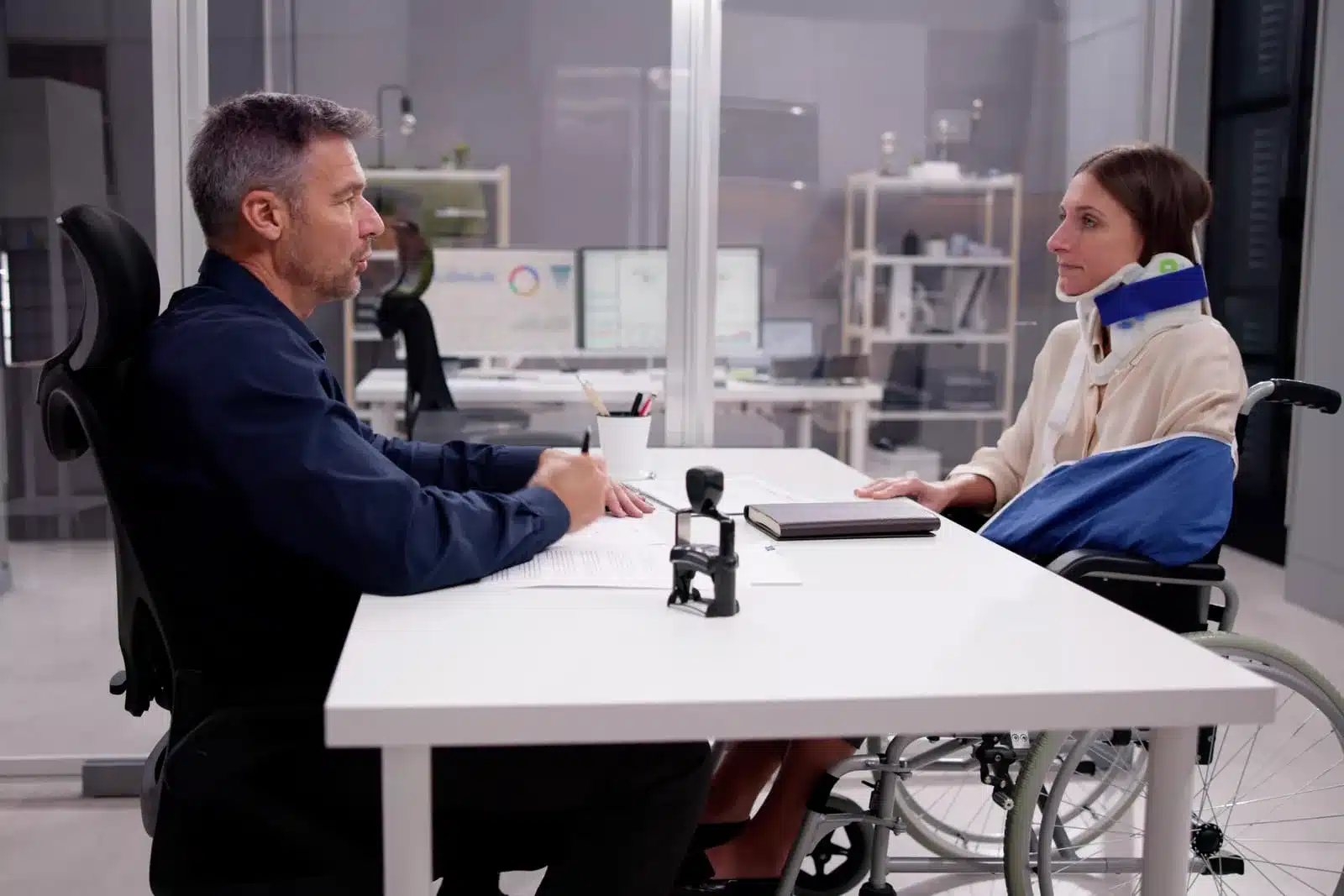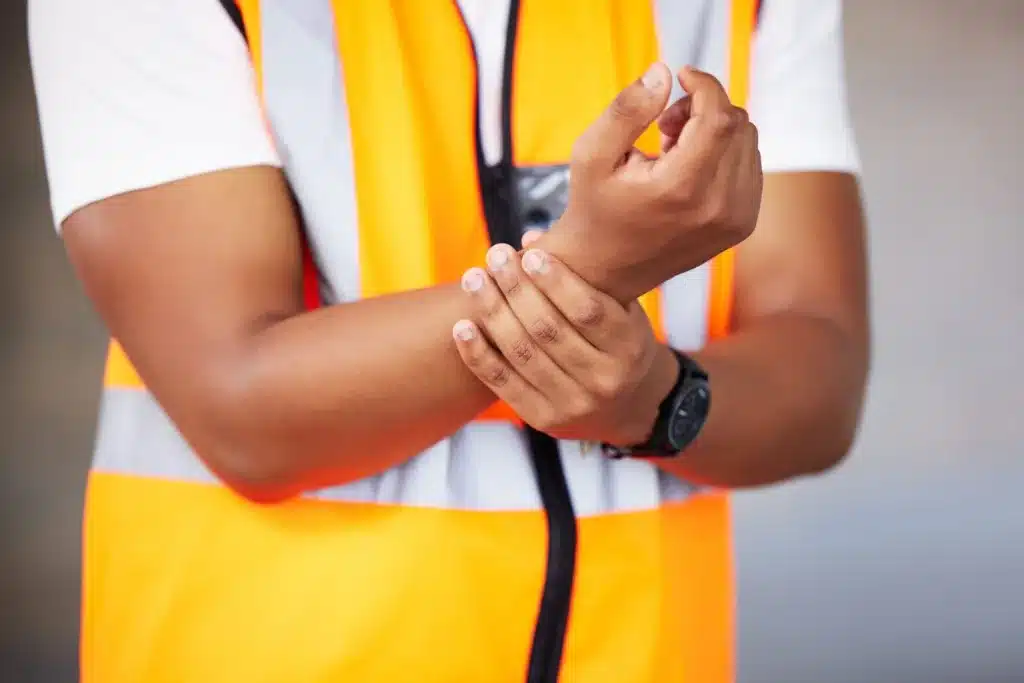Why Do Workers’ Compensation Investigations Happen and What are They Looking For?
Filing a workers’ compensation claim can be stressful. Especially when the insurance company starts investigating your injury. Many injured workers feel like they’re suddenly under suspicion for simply trying to get the benefits they deserve.
In Florida, workers’ compensation investigations are a standard part of the claims process. Insurance carriers have the right to verify the legitimacy of a claim, but they often go too far, and sometimes they cross the line or make workers feel like criminals.
Understanding what investigators look for, how investigations should be handled, and how to protect yourself can make the difference between an approved claim and one that’s delayed or denied.
Why Do Workers’ Compensation Investigations Happen in the First Place?
When you file a workers’ compensation claim, it’s common for the insurance company to open an investigation to verify the details of your case.
- Insurance companies investigate claims to confirm that:
- The injury happened at work or was caused by job duties
- The extent of the injury matches what’s being claimed
While investigations are intended to prevent fraud, many legitimate claims get heavily scrutinized simply because insurers want to limit payouts. In other words, they’re often looking for reasons to deny or reduce your benefits.
Attorney Matthew Sosonkin explains: “Insurers are quick to spend money investigating workers, but slow to approve treatment. Our job is to make sure their tactics don’t unfairly hurt your right to care and compensation.”
J F
Matt Sososkin was my workers comp attorney. Wow he not only settled my case, but exceeded my expectations all around. Happy I chose this place ! Thank you Matt
What are Insurance Companies Looking For During a Workers’ Compensation Investigation?
Investigators may use several methods to gather information about your claim, often without your knowledge. Here’s what they commonly look for:
1. Your Medical Records
Insurance adjusters carefully review all medical documentation, including old injuries or pre-existing conditions, to argue your current injury wasn’t caused by work.
Tip: Always disclose past conditions honestly. Hiding information can hurt your credibility more than the condition itself. It can also lead to a complete denial of your claim.
2. Social Media Activity
Investigators often monitor social media for posts, photos, or videos that could be misinterpreted as proof you’re not injured. Even innocent content, like smiling at a family event or carrying groceries, can be twisted to suggest you’re exaggerating.
Tip: Stay off social media while your claim is active. Don’t post anything that could be taken out of context.
3. Surveillance and Private Investigators
In more serious or high-value cases, insurers may hire private investigators to follow you. They might film you outside your home, at stores, or during daily activities to see if your behavior contradicts your reported injuries.
Tip: Assume you could be observed in public at any time. Follow your doctor’s restrictions exactly; not just for your case, but for your health and safety.
4. Statements to Your Employer or Adjuster
Investigators and adjusters listen carefully to every word you say. Whether in emails, phone calls, or conversations with coworkers. Any inconsistency in your story, no matter how small, can be used to dispute your claim.
Tip: Be consistent, concise, and factual. If you’re unsure how to respond, speak with your attorney before answering.
5. Witness Accounts
Co-workers or supervisors may be asked to describe what they saw during or after your accident. If your version of events differs from theirs, it may raise red flags for the insurer.
Tip: Report your injury immediately, and ensure an official workplace accident report is filed so your account is on record.
6. Job Performance and History
Investigators may review your attendance records, disciplinary actions, or prior claims to suggest a pattern of negligence or malingering.
Tip: Keep copies of your own work records and correspondence. Having documentation helps your attorney address any false claims.
Workers’ compensation investigators are not looking to help you. They’re looking to protect the insurance company’s bottom line. They’ll dig into every aspect of your life to find inconsistencies, even when you’ve done nothing wrong. RTRLAW’s experienced workers’ compensation attorneys know how insurers operate and can shield you from these aggressive tactics. With the right legal guidance, you can focus on recovery, not surveillance.
How Long Do Workers’ Compensation Investigations Last?
The investigation period varies depending on the complexity of your case. Minor injuries might be reviewed within a few weeks, while serious or disputed claims could take several months.
In Florida, insurance companies typically have 120 days to investigate a claim after it’s reported. During this time, they may pay benefits on a “without prejudice” basis. This means they can still deny the claim later if they find evidence against it.
RTRLAW holds insurers accountable, making sure that they meet all legal deadlines and don’t delay payments unfairly.
What You Should Do (and Not Do) During a Workers’ Compensation Investigation?
When you’re under a workers’ compensation investigation, every action you take, and even what you don’t do, can affect the outcome of your claim. Insurance companies are watching for inconsistencies, hoping to find any reason to question your credibility or deny your benefits. Knowing how to handle yourself during this process can make a major difference in protecting your rights.
Here are some important do’s and don’ts to keep in mind:
Do:
- Follow all doctor’s orders and work restrictions
- Attend all scheduled medical appointments
- Keep copies of all records, prescriptions, and work notes
- Report any contact from investigators or adjusters to your attorney immediately
Avoid:
- Exaggerating or minimizing your symptoms
- Posting or commenting about your injury online
- Performing activities that conflict with your medical restrictions
- Discussing your case with co-workers or friends
Workers’ compensation investigations are designed to uncover the truth, but even honest mistakes can be misinterpreted. Staying consistent, transparent, and careful about what you say or do helps ensure your case stays on solid ground.
Remember, honesty and consistency are key. If you’re doing everything your doctor and attorney recommend, the truth will protect your case and not hurt it.
How RTRLAW Protects Clients During Workers’ Compensation Investigations
When RTRLAW takes on your case, our attorneys immediately step in to handle all communication with the insurance company. We ensure your rights are protected throughout the investigation process, including:
- Preventing insurance adjusters from overstepping legal boundaries
- Ensuring all surveillance and requests for information comply with Florida law
- Managing all correspondence and medical record submissions
- Preparing clients for statements, IMEs, and hearings
We also work proactively to gather our own evidence, medical documentation, expert opinions, and witness testimony, to strengthen your claim and counter any misinformation.
Workers’ compensation investigations can feel intimidating, but they don’t have to derail your recovery or your claim. With RTRLAW on your side, you’ll have an experienced legal team ensuring that the process is fair, lawful, and based on facts; not assumptions.
If you’re being investigated for a workers’ compensation claim in Florida, call RTRLAW today at 1-833-HIRE-RTR (1-833-447-3787) for a free, confidential consultation. Our attorneys will help you understand your rights, avoid common missteps, and fight for the full benefits you deserve.


 CALL US NOW
CALL US NOW TEXT US NOW
TEXT US NOW



























